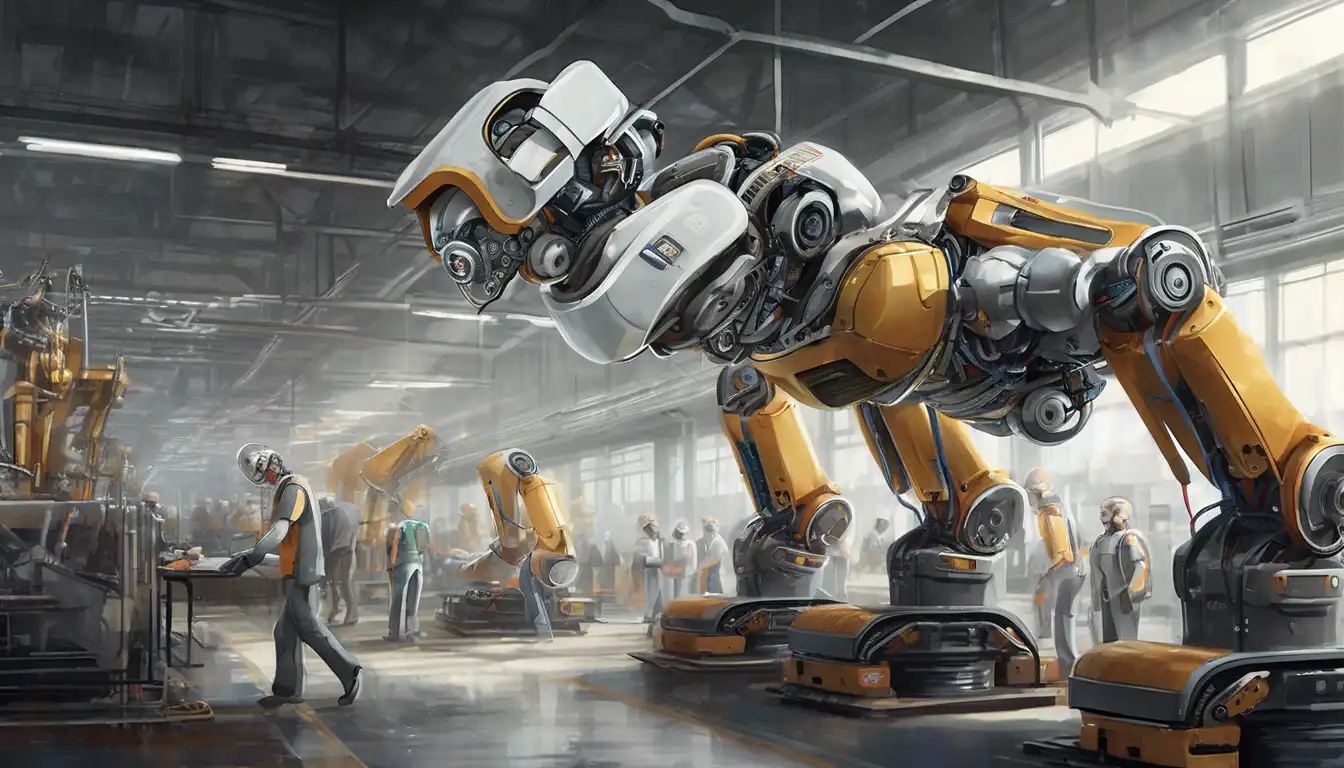The Revolutionary Impact of Robotics on Modern Manufacturing
In the realm of manufacturing, robotics has emerged as a game-changer, revolutionizing how products are designed, produced, and delivered. This transformative technology is not just enhancing efficiency but is also redefining the very fabric of manufacturing processes across the globe.
Enhanced Efficiency and Productivity
One of the most significant benefits of robotics in manufacturing is the remarkable increase in efficiency and productivity. Robots, with their ability to work tirelessly around the clock, have drastically reduced production times while maintaining high-quality standards. This relentless efficiency is enabling manufacturers to meet the ever-growing consumer demands with unprecedented speed.
Cost Reduction and Economic Benefits
Beyond productivity, robotics is instrumental in driving down costs. By automating repetitive and labor-intensive tasks, companies can significantly reduce labor costs and minimize human error, leading to substantial economic benefits. Moreover, the precision of robots ensures less material waste, further optimizing production costs.
Improved Safety in the Workplace
Robotics technology has also made manufacturing environments safer for human workers. By taking over dangerous tasks, such as handling hazardous materials or operating heavy machinery, robots have significantly reduced workplace injuries. This not only protects employees but also reduces liability and insurance costs for manufacturers.
The Future of Manufacturing with Robotics
As we look towards the future, the role of robotics in manufacturing is set to expand even further. With advancements in artificial intelligence and machine learning, robots are becoming more intelligent and capable of performing complex tasks with minimal human intervention. This evolution promises to unlock new levels of innovation and efficiency in manufacturing processes.
For those interested in exploring more about how technology is shaping industries, check out our latest articles on technology trends.
Challenges and Considerations
Despite the numerous advantages, the integration of robotics into manufacturing is not without its challenges. The initial investment in robotics technology can be substantial, and there is a growing need for skilled personnel to operate and maintain these sophisticated systems. Additionally, as robots take on more roles, the workforce must adapt, highlighting the importance of continuous learning and development in the manufacturing sector.
In conclusion, robotics is undeniably transforming the manufacturing industry, offering a blend of efficiency, cost savings, and safety improvements. As technology continues to evolve, the potential for further innovation and growth in this sector is limitless. Manufacturers who embrace this change and invest in robotics technology are poised to lead the way in the competitive global market.
Discover more about the future of manufacturing and technology by visiting our future technology insights.
